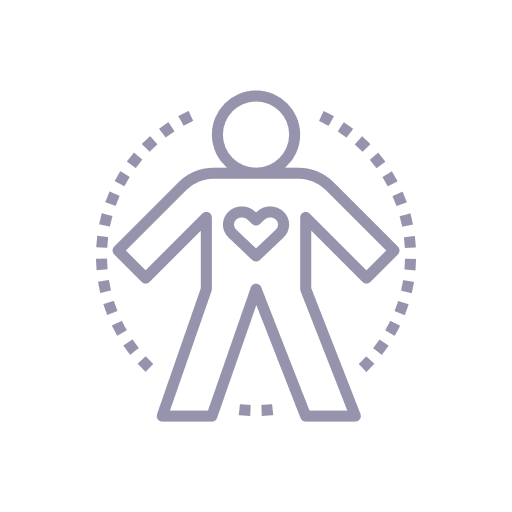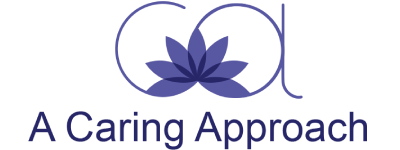What To Expect From Your Counseling Session
How Can Individual Counseling Help Me?
Client Expectations & Hopes
Successful Therapy: Your Role As A Client
Research on Benefits of Therapy
The Client-Therapist Relationship
Individual Psychotherapy & Counseling: Dr. Durana's Approaches & Methods
Individual Therapy
Dr. Durana’s caring and holistic approach for individual counseling fosters your strengths and inner resources to facilitate change and obtainment of goals. He is encouraging and respectful of your ability to uncover inner resources and direction for growth.
Dr. Durana’s practice is founded on a genuine capacity for warmth, empathy, caring, attentiveness and respect for each individual’s ideas and feelings. In these ways, he provides encouragement in a safe and supportive space for his clients to take the time to think through issues, generate new perspectives and experience mastery over their problems.
How Can Individual Counseling Help Me?
Dr. Durana is flexible about choosing and adapting the therapeutic method best suited for you by emphasizing your assets and focusing on what has worked for you during your life, rather than what has failed. With this approach, Dr. Durana works with you to elicit your strengths, inner resources, and capacity for growth and healing.
Drawing on decades of experience, Dr. Durana developed a model for effective individual counseling and psychotherapy that fosters personal growth, healing, wellness and skills to improve your daily life. His holistic approach focuses on creating change from a position of strength, incorporating the connection between body, mind and emotions.
Dr. Durana offers counseling and psychotherapy as well as telephone consultations in Reston, VA, Bethesda, MD, and Washington, DC.
Successful Therapy: Your Role As A Client
In his counseling and psychotherapy with individuals, Dr. Durana focuses on what works for you to foster your strengths, resources and abilities. Through years of experience working with individuals, he has found that people can solve problems more easily and fortify their self-esteem by working from a position of strength vs the tendency to dwell on perceived insufficiencies. In other words, Dr. Durana has found that a person’s capacity for healing is promoted by developing an individual’s strong points and positive qualities as a means to master new challenges.
Read More About Your Role As A Client
This approach is supported by research, which shows there are four factors in determining success in individual counseling and psychotherapy. The first and most important element, which determines about forty percent of overall success, is a client’s capacity for growth and self-healing. Everyone has these resources, which include: beliefs, values, feelings, knowledge, experience, communication skills and relationship capabilities. Effective individual counseling or psychotherapy helps clients marshal these resources.
Some forms of counseling emphasize what’s wrong with the person, known as pathologizing. Although this kind of diagnosis can sometimes be helpful in a limited way, Dr. Durana has found this approach can lead to labeling the person and has many drawbacks. For example, when someone is called phobic about relationships, this label and the associated lack of competencies can act as barriers that may prevent fully understanding the person; for the client, the label may cause that person to put up defenses, cutting off avenues to improving their circumstances.
Dr. Durana knows that a person is much more than a label; that no one fits neatly into a category. Labeling a person diminishes human value and ignores the complexity of an individual. For example, rather than referring to someone as “phobic about relationships,” it’s much more useful and perceptive to look deeper. Perhaps the person has forgotten or never learned how to relate because of past disappointments or losses in childhood. For the client, Dr. Durana’s holistic approach helps avoid the risk of getting into a rut, while opening up a person’s ability to think about what goes on within himself and with other people – friends, colleagues, spouses. It also facilitates self-understanding, self-acceptance and self-love rather than experiencing oneself as defective or damaged.
Successful individual counseling also involves exploring what has helped a person in the past. While it is valuable to recognize what hasn’t worked, it’s more valuable to find out what has worked so that it can be enhanced and used. For example, in what periods of our lives did we feel the best about ourselves? When and how did we make the best decisions? In this way, Dr. Durana supports self-discovery, personal responsibility, personal control and problem solving. This approach is based on the premise that people possess the ability to uncover resources and directions for growth in life and is founded upon a faith and interest in everyone’s personal worth, competence and lovability.
Dr. Durana believes it is the job of the therapist to help the client uncover their resources and potential for growth and to provide the conditions under which successful counseling and psychotherapy can occur. But ultimately, it’s the client’s willingness to work on themselves that makes therapy work.
The Client-Therapist Relationship
The second most important factor in successful individual psychotherapy is the working alliance developed by the client and the psychotherapist. This relationship is a resource that you as a client can mobilize for healing and growth and requires not only the commitment of the counselor, but an expansive capacity for understanding, encouragement and support.
Read More About The Client-Therapist Relationship
In a collaborative and caring counselor/client relationship, through the meeting of minds and hearts, Dr. Durana listens and engages rather than “treating” or “fixing.” This allows for a confiding relationship to develop where you can feel safe exploring deeper areas of concern. Even those who may not be ready or willing to engage in deeper self-exploration can benefit and grow from this kind of caring approach and discover new resources, gain skills and expand self-knowledge.
To effectively work with an individual, Dr. Durana focuses on understanding and empathizes with what is most important to you and how much you are willing to engage and learn. In this way, you set the agenda and work collaboratively with Dr. Durana to accomplish your goals. This cooperative approach is a good predictor of successful outcomes. In the end, when you, the client, see the product of the individual counseling as a result of your own best efforts and have accepted responsibility for the changes, the results are more likely to endure.
Dr. Durana is available for Individual counseling and psychotherapy in his offices in Reston, Virginia and Bethesda, Maryland.
Client Expectations & Hopes
The vast majority of people seeking individual therapy are not sick in the medical sense, but may be experiencing mental and emotional pain. Or they may be frustrated and discouraged about not reaching their life goals. Other individuals seek counseling because they’re not functioning optimally.
Dr. Durana has found that people tend to turn to old strategies to try to “fix” their problems, even when these strategies aren’t working; others try to avoid or deny a life-interfering problem. Many people are disinclined to talk to someone about their issues or don’t have anyone who will listen in a caring way to help them get perspective and contemplate solutions.
Read More About Client Expectations & Hopes
As a result, people often seek help from a psychotherapist or counselor when they feel demoralized about their own problem-solving efforts or feel stuck and powerless about changing things. When a person seeks help by engaging in individual psychotherapy, it demonstrates an active determination to get better, which is the first step towards positive change. Dr. Durana sees the act of participating in individual therapy as an affirmative sense of “I can do it.” An act of hope.
Good psychotherapy fosters this type of thinking. Effective therapy offers hope that something can be done to improve one’s condition and enhance pathways for experiencing and thinking about problems. A client’s perception of the problem and hope about ameliorating it, is the third important factor in determining the success of counseling. In other words, a belief in the restorative power of individual counseling helps facilitate progress. This requires attention to what is functional in the client’s life and allows Dr. Durana to work with an individual to enhance their strengths, resources and capacities to cope effectively within a context of care and respect. In turn, this helps generate hope and optimistic expectations that change will occur and the client has the competency and power to initiate recovery and change.
Change is usually a step-by-step process of trying out new things over successive times. In everyday life, people change through normal processes of thinking about a problem, exploring and experimenting with solutions and receiving feedback from the environment; out of this come new perspectives and experiences, which lead to new solutions and explorations. These are natural self-righting mechanisms, that when promoted, generate hopefulness in the pursuit of goals.
The last factor of psychotherapeutic success, contributing about fifteen percent of the total benefit, refers to the methods or techniques used in therapy. The client factor described earlier contributes about forty percent, client/therapist relationship about thirty percent and hopeful expectancy about fifteen percent. More important than the technique or method is how you, the client, use the approach.
In individual counseling or psychotherapy, you are the primary healing factor. Healing and growth occurs through the client’s self-correcting, self-healing or self-actualizing potential. Psychotherapeutic techniques and methods of therapy help stimulate these restorative processes under a psychotherapist’s guidance and supportive contributions and experience; your hope and resolve drive the process. The magic is in you, the client.
%
Clients Achieve Beneficial Effects In 5 - 10 sessions
Research On Benefits of Therapy
Individual psychotherapy or counseling can be helpful for most people. Research suggests that beneficial effects can be achieved in five to ten sessions with at least fifty percent of clients. For twenty to thirty percent, more than 25 sessions may be required. Clients who are very resistant, poorly motivated, have a history of poor relationships or expect to be passive recipients of a medical procedure are more likely not to benefit.
Dr. Durana offers counseling and psychotherapy as well as telephone consultations in Reston, VA and Bethesda, MD.
Individual Psychotherapy & Counseling:
Dr. Durana’s Approaches and Methods
Dr. Durana draws on successful psychotherapeutic methods when working with clients. These approaches can be viewed as different ways of learning tailored to each individual. For example, some of us are best at utilizing thought processes; others work best through experiencing feelings and emotions; still others by practicing self-awareness or mindfulness. Other people benefit most by focusing on behavioral changes and action, such as improving communications skills and learning new behaviors. Still others may benefit greatly by concentrating on body awareness and the relationship between body signals and personal concerns. A combination of these therapies may be the best approach for other people.

Most importantly, there’s not one best approach; one size doesn’t fit all. Rather, when working with an individual, Dr. Durana can assess the method most suitable for you, the client. More than one approach and different methods can be used at different stages of psychotherapy. Examples of some of the approaches used by Dr. Durana are described next and are incorporated into his counseling practices in Reston, Virginia and Bethesda, Maryland.
Cognitive Behavioral Therapy
As human beings, we have beliefs about everything. Beliefs are part of our self-image, sense of self, philosophy of life, our way of relating to others. We interpret reality through our beliefs. Many of life’s problems arise out of faulty or limiting beliefs, such as: “I am unworthy,” or “I am unlovable” or “people are untrustworthy.” If I believe that I’m inferior and people are hostile, I may not strive towards solving my problems and instead develop compensatory ways of coping by avoiding people and situations or withdrawing.
Beliefs can be observed in our inner self-talk and in our evaluations of ourselves and others and become automatic thought patterns that distort experiences. For example, if I believe that I am inadequate and I get a good grade, I may discount it. Instead of valuing my efforts, I may dismiss my achievement by saying to myself, “well, no big deal, that was easy” or “I should have done better than that.”
Cognitive behavioral approaches help individuals identify and transform problematic beliefs and behaviors into adaptive and healthy ones. These approaches are very helpful with depression, anxiety, health related concerns, coping with illnesses and stress, personality disorders, addictions and other life issues.
Mindfulness Counseling or Psychotherapy
Mindfulness refers to being conscious or aware of something; thus, doing something mindfully entails doing it with awareness. More broadly, mindfulness is a quality of attention characterized by curiosity, openness, non-judgment and acceptance. It is an open and receptive attention to what is happening in the present as opposed to our habitual and automatic ways of mental processing that attend to the past or the future, missing important aspects of our experience.
Dr. Durana’s mindfulness counseling practices teach clients to understand themselves in a non-judgmental way, and to develop an inner stillness that is essential as a way of standing back from a problem to get a wider and deeper perspective. Through mindfulness, we can develop a healthier relationship to our problems or illnesses. This meditative approach is excellent for dealing with anxiety, depression, pain, illnesses and other disorders. Mindfulness can also help a client connect with deeper dimensions of being, what some describe as soul or spirit – our core awareness.
Emotion-Based Counseling Approaches
A common problem for individuals grappling with life issues is avoidance – the denial of certain emotions and feelings. So, instead of acknowledging problems or feelings that make us feel uncomfortable, we may make excessive use of certain emotions and suppress others, thus creating inner conflicts. This can be problematic in our personal life as well as in our relationships.
Dr. Durana believes that all emotions have a purpose and a role in life. The ability to be emotionally open to another human being is essential in the development of intimate relationships. Emotions can open us up to our needs, affirm our worth, facilitate communication and problem solving, and promote marital satisfaction and love.
Our deeper core beliefs about ourselves are emotionally encoded. Techniques that evoke our experience of emotions are also particularly helpful in effectively enhancing motivation, commitment and determination in the effort to achieve our goals and resolve our problems. Emotion-based counseling approaches also help clients enhance awareness of emotions and appraisals, and gain acceptance of themselves and of their experience. The development of emotional awareness also facilitates motivation through the integration of emotion and action, attachment and emotional connection in relationships, and it is commonly used in both individual and couple psychotherapy.
Body-Centered Approaches & Holism
Body-centered approaches to individual psychotherapy often involves the concept of unity between body and mind (holism). Dr. Durana’s innovative work shows that it’s impossible to separate the mind and body. Rather, instead of viewing the mind in a hierarchical position above the body, he treats each as interactive aspects of the whole person. Accordingly, by becoming more in touch with the connection between our minds and bodies, thoughts and feelings, and our wellbeing, we can learn and change about our limited beliefs and counterproductive ways of being.
Dr. Durana’s interactive body-centered counseling approaches illuminate the connections that exist between stress, thoughts, feelings, coping styles and physical symptoms or illnesses. It’s a way to make use of sensation-based awareness to support change, and which can diminish the effects of trauma, enhance our ability to manage physical symptoms, increase vitality and create a sense of personal integration and wellbeing.
Dr. Durana offers body-centered therapy as well as other methods of individual counseling and psychotherapy in his offices in Reston, Virginia and Bethesda, Maryland.
Getting Started is Easy
Free 20 Min Chat
Book Appointment
1st Session!
Contact Me
Ask a question or book an appointment below.




